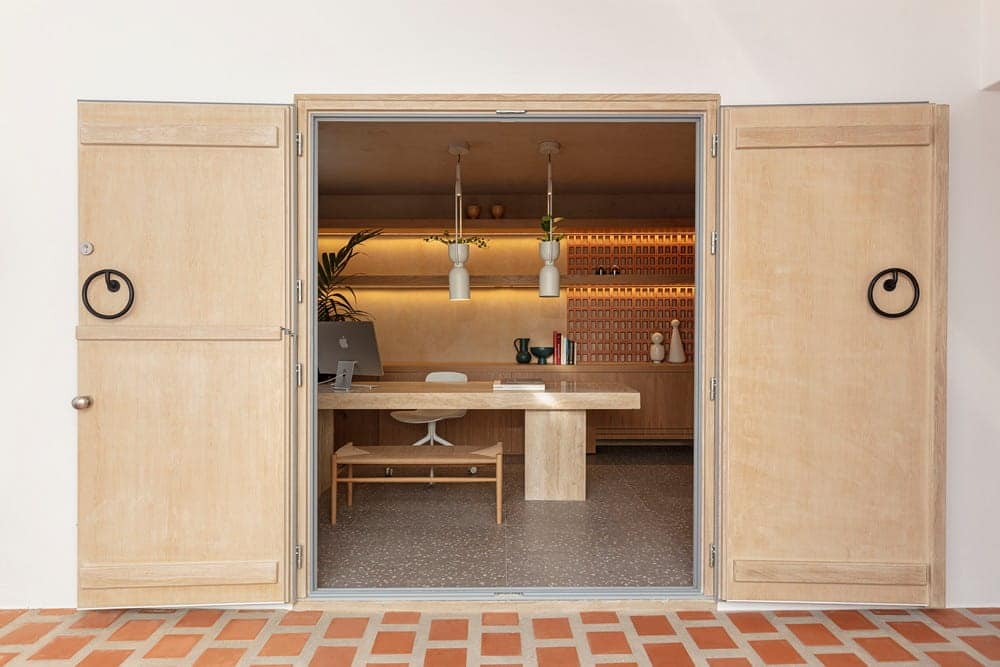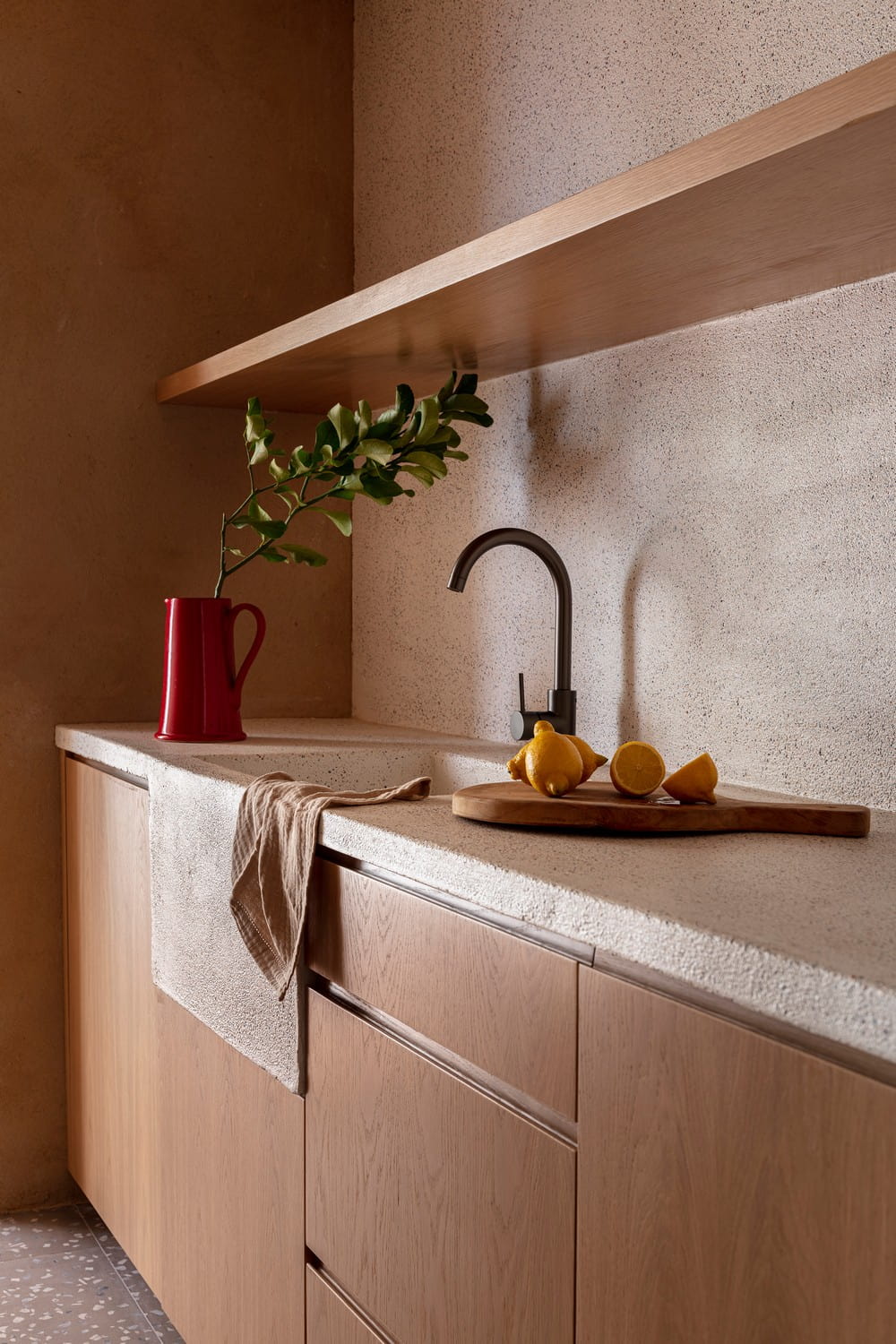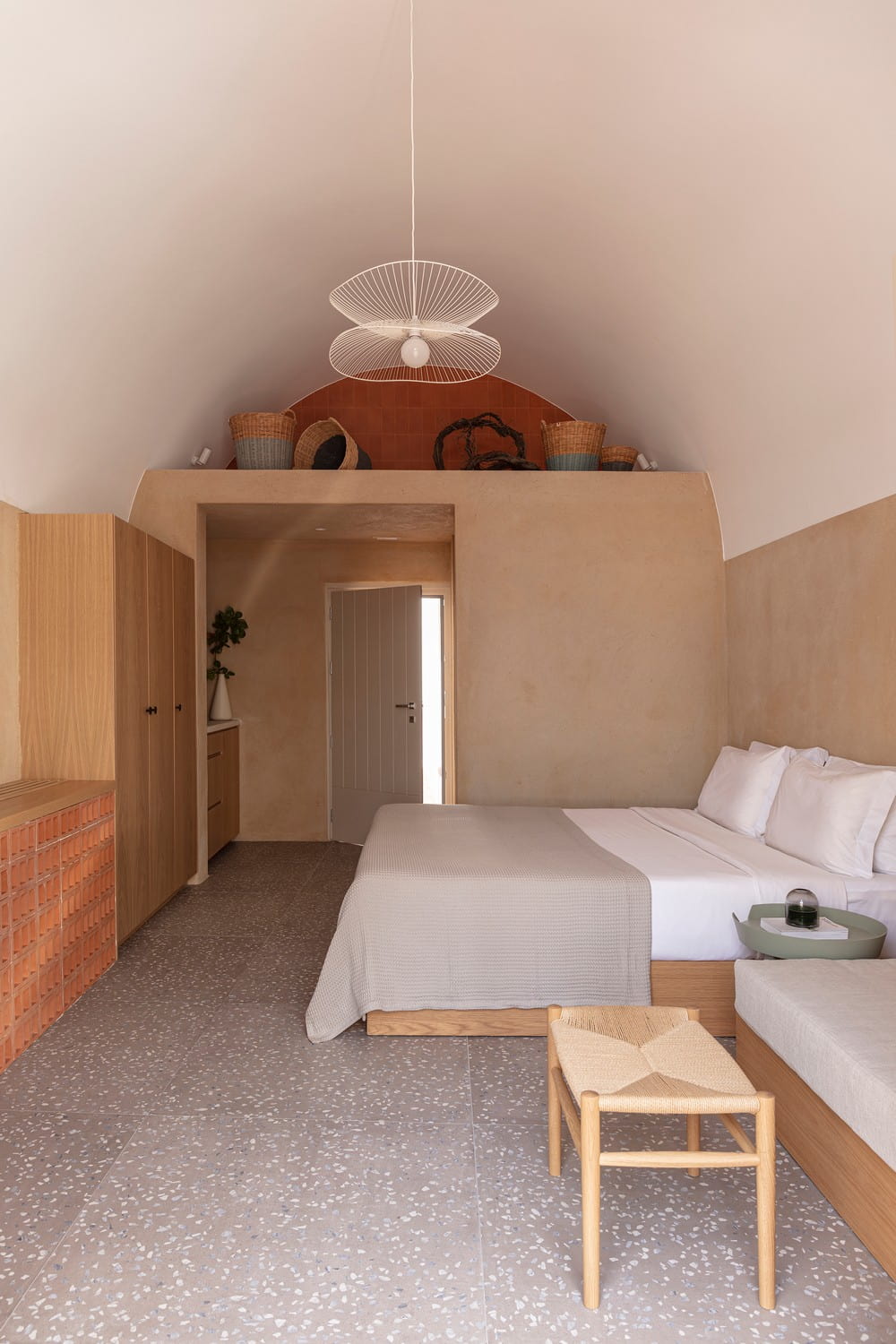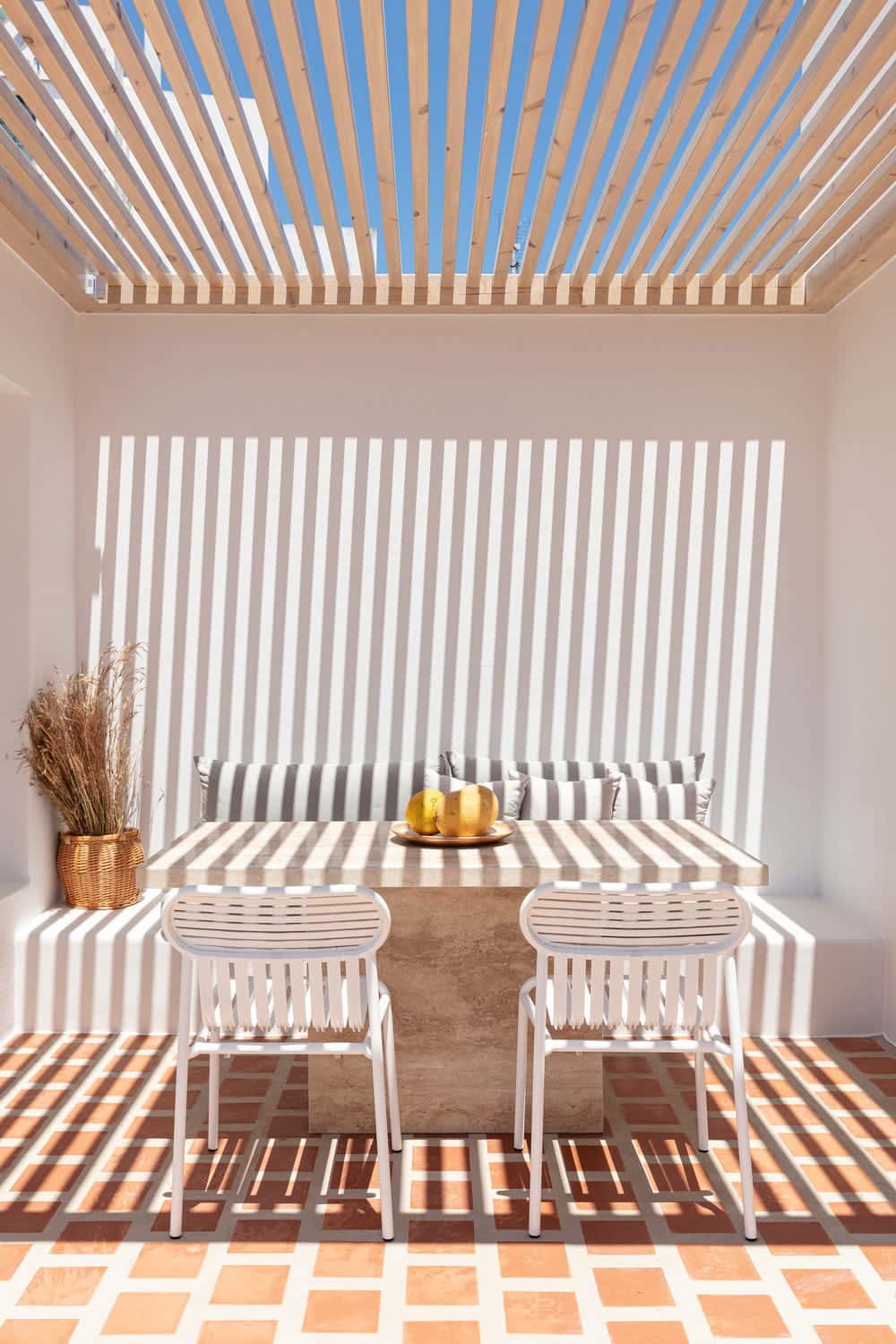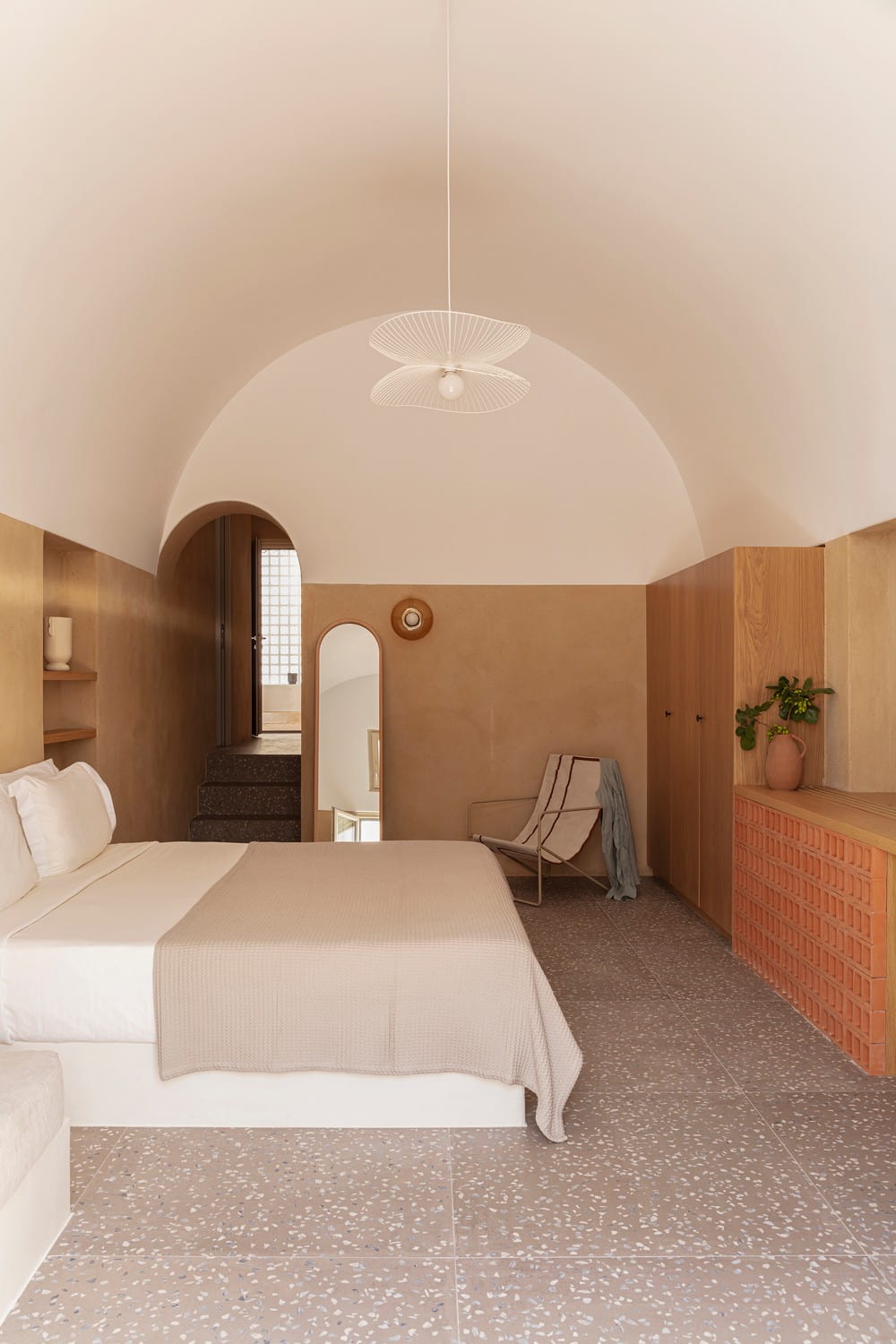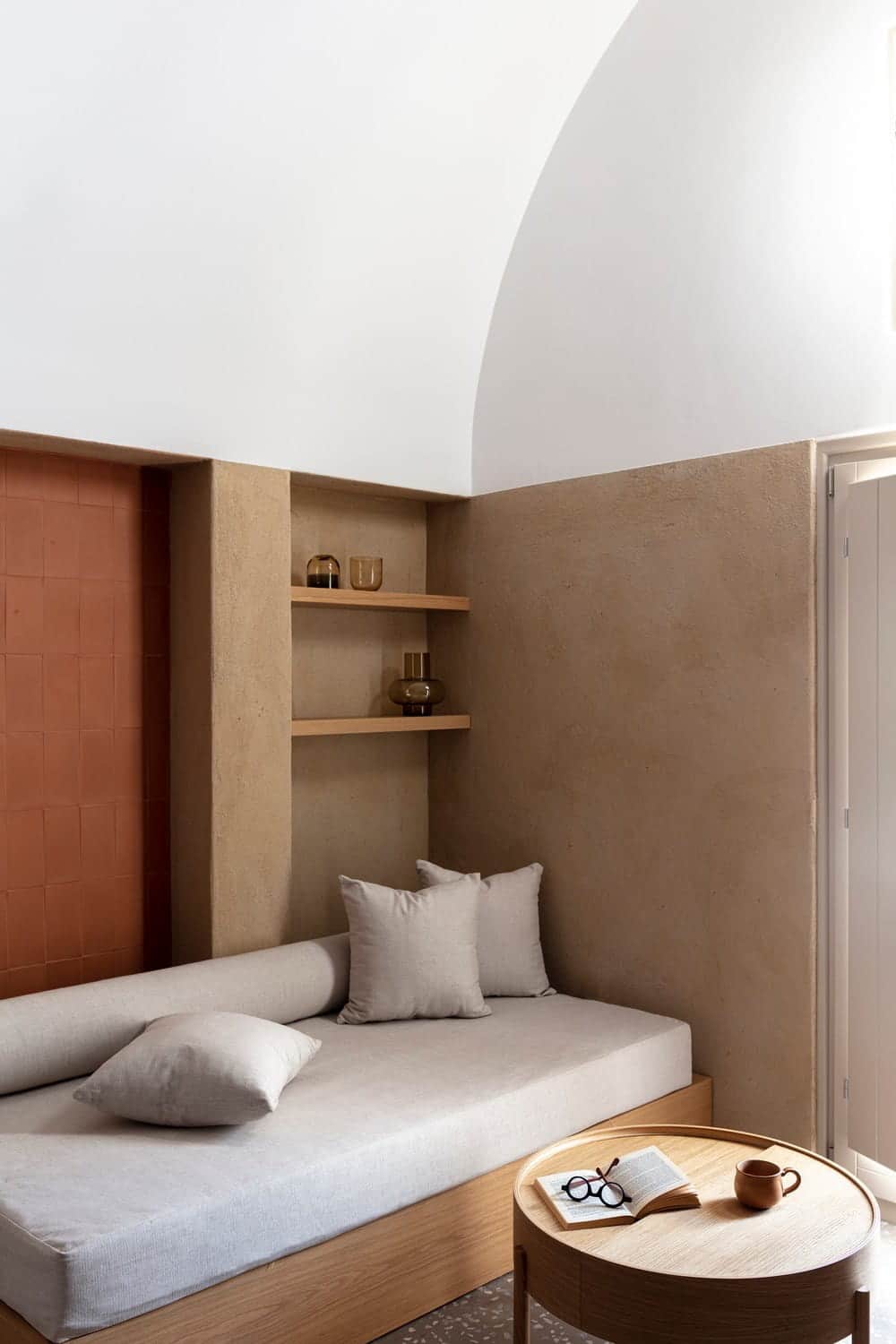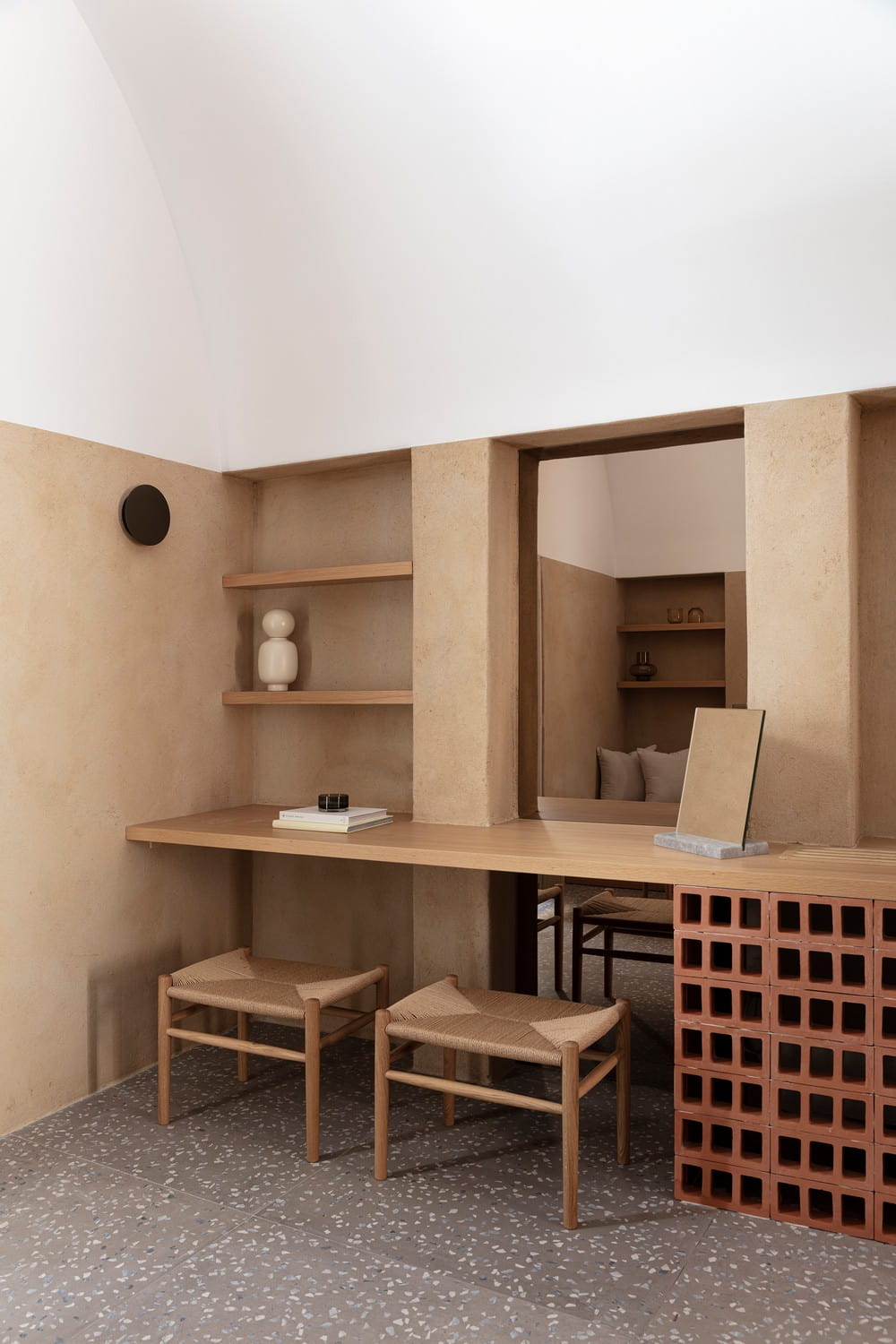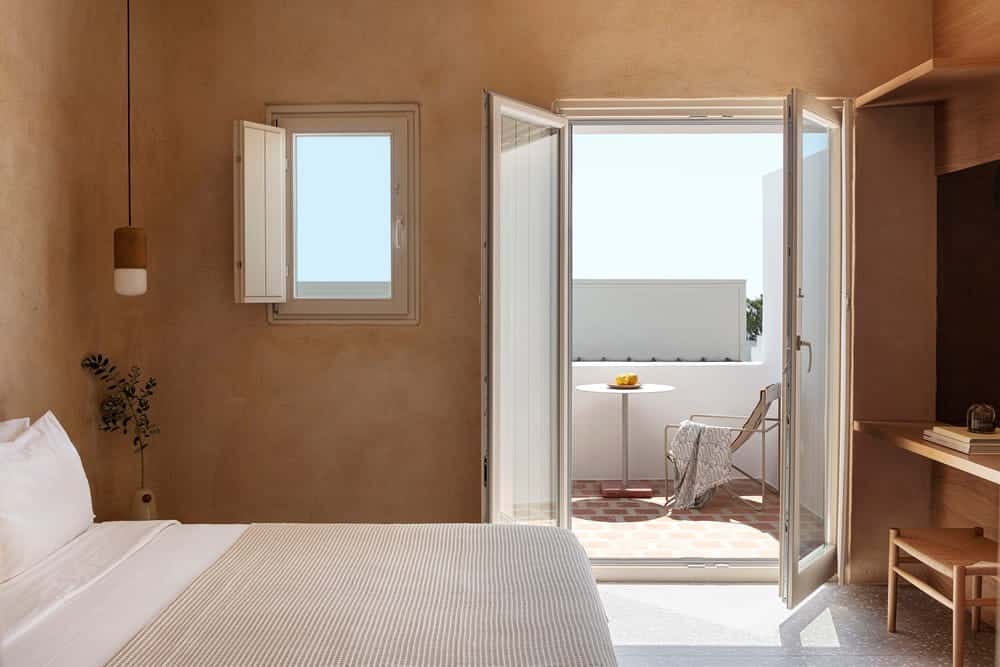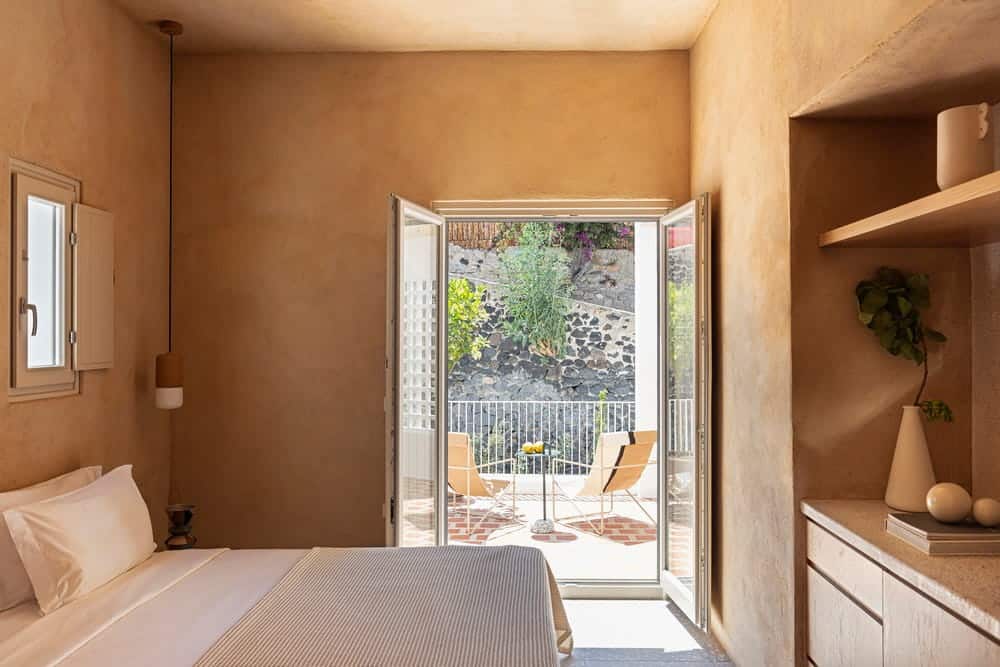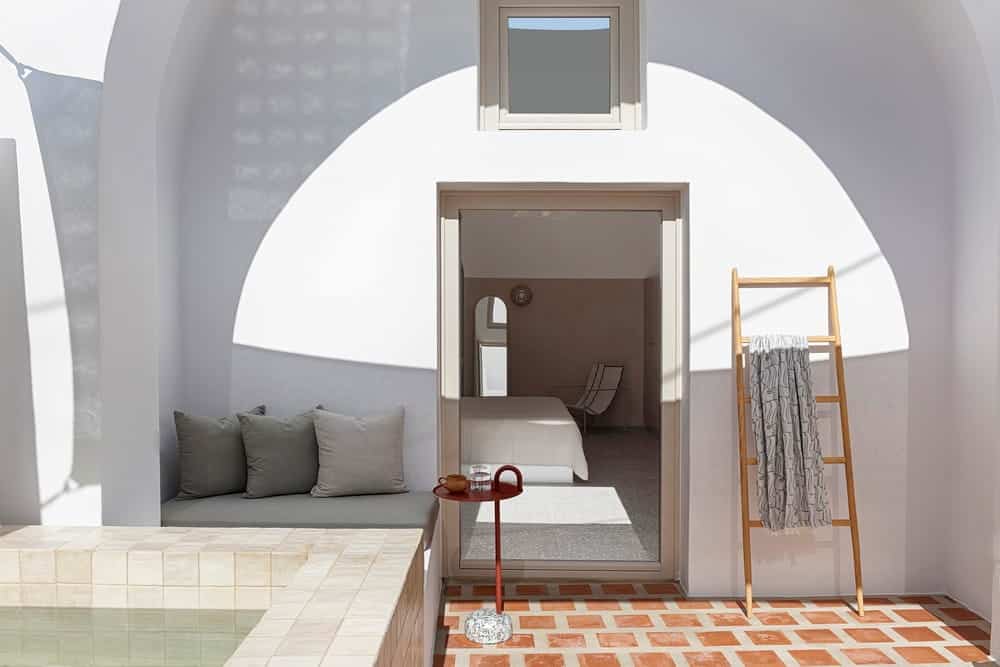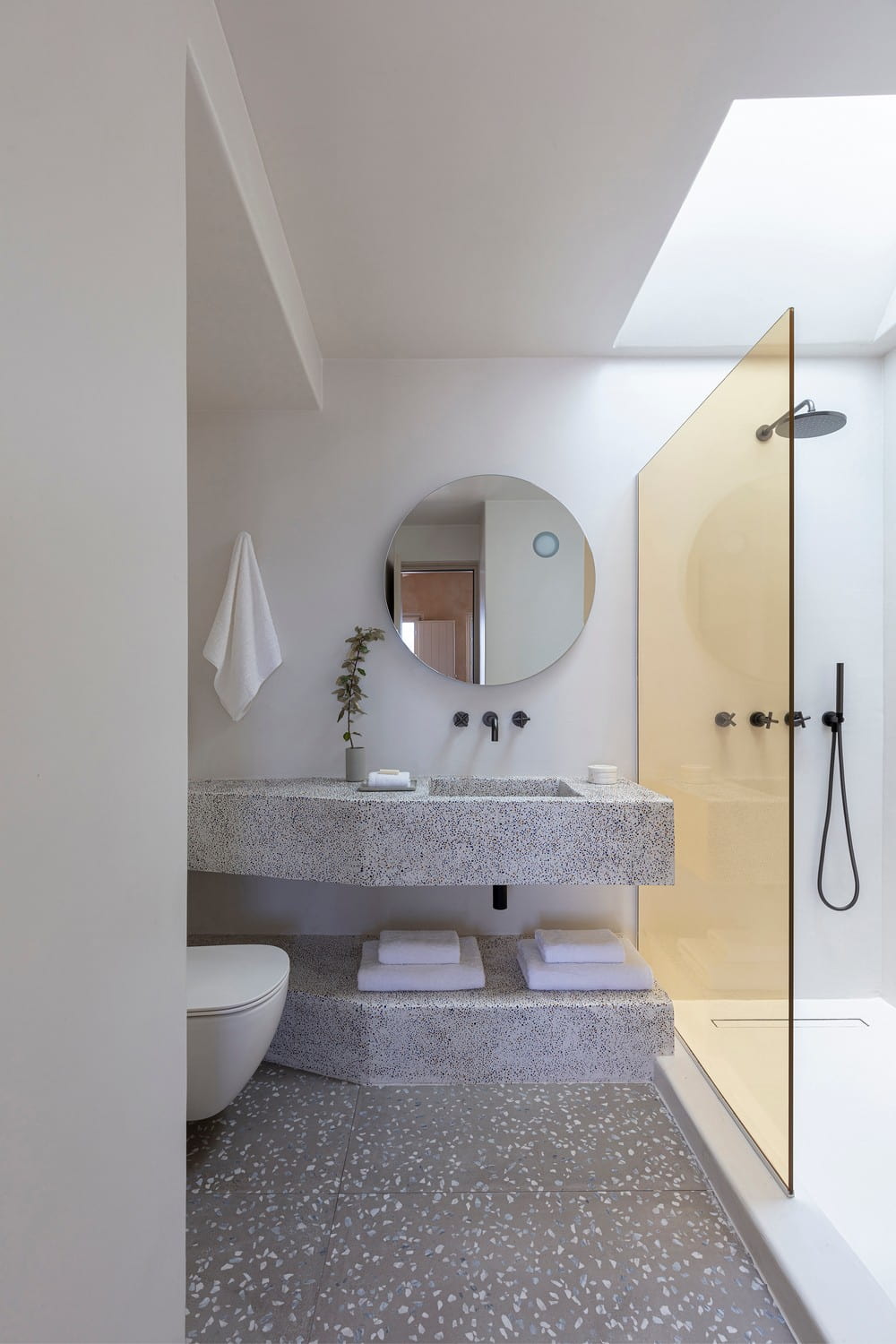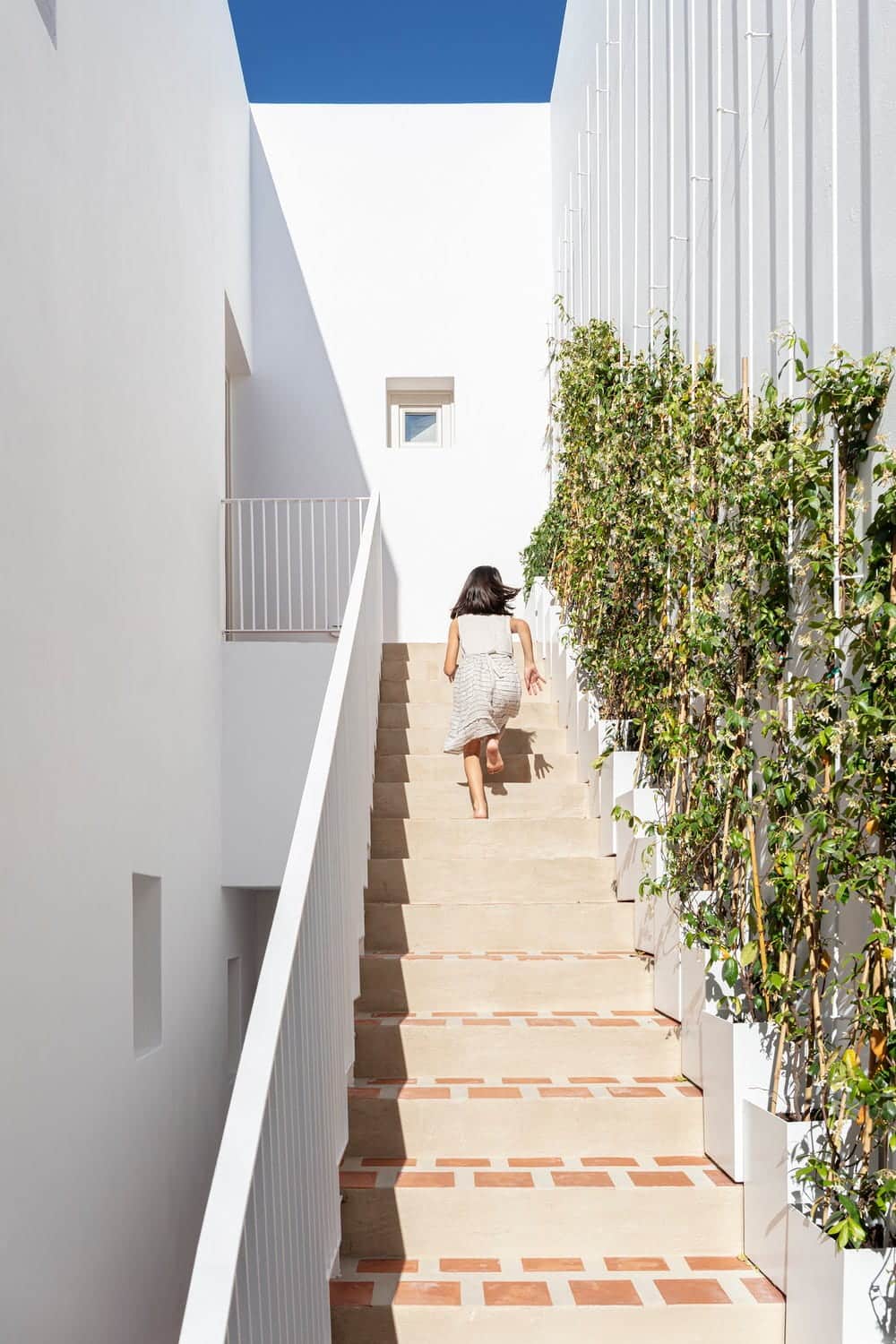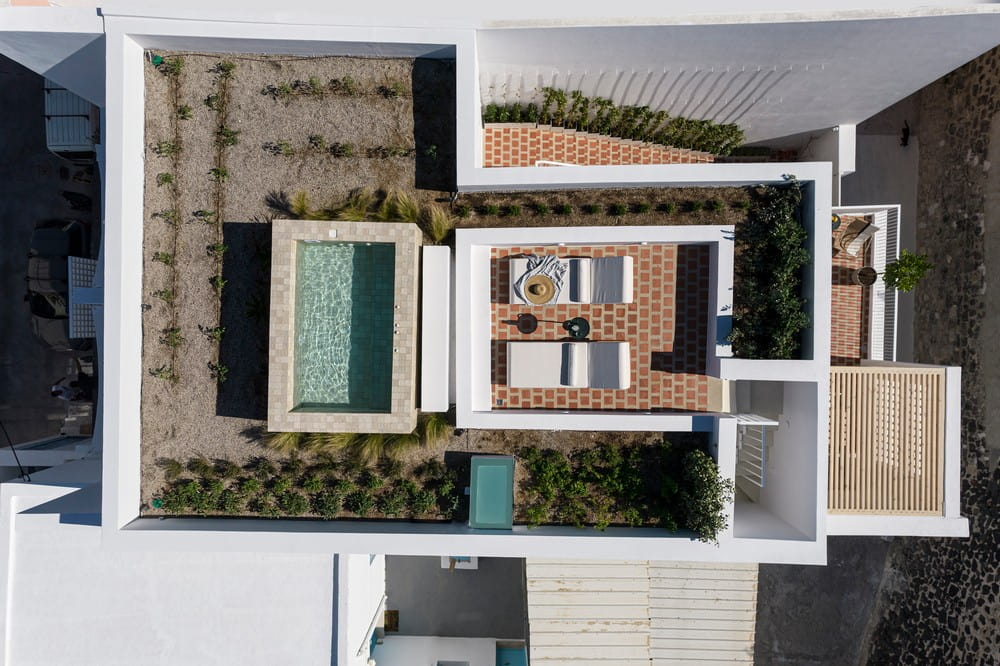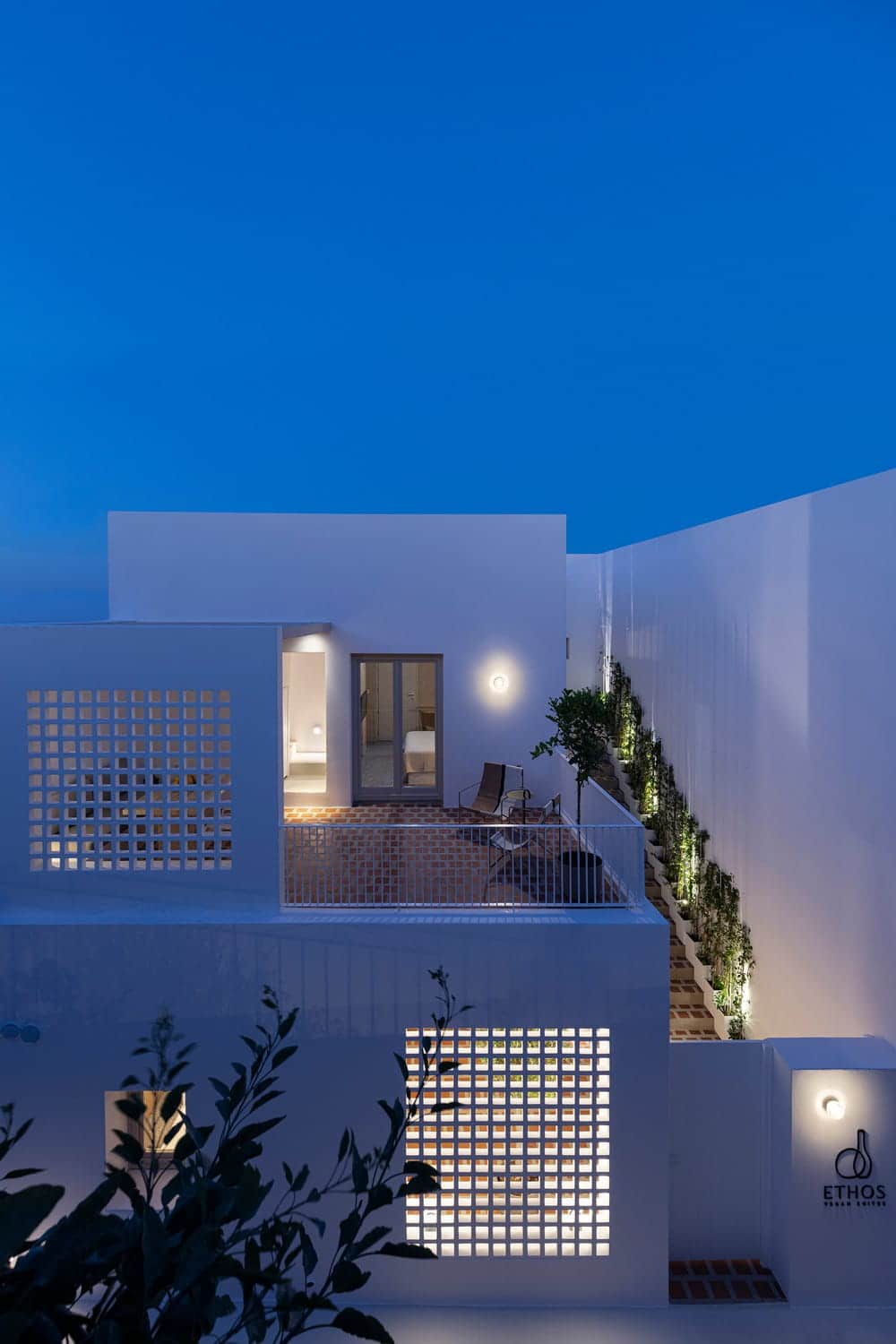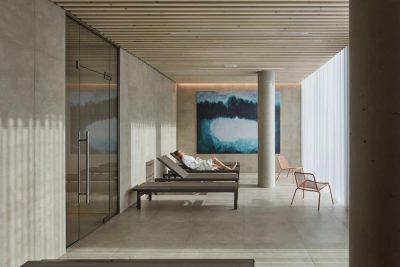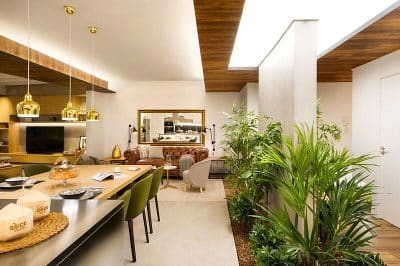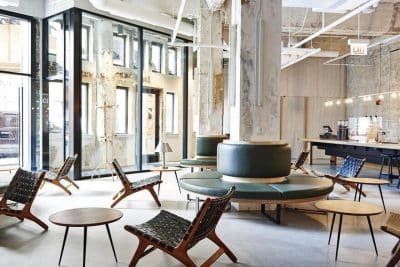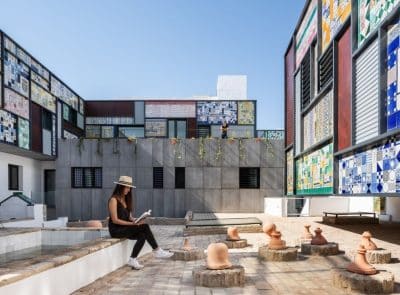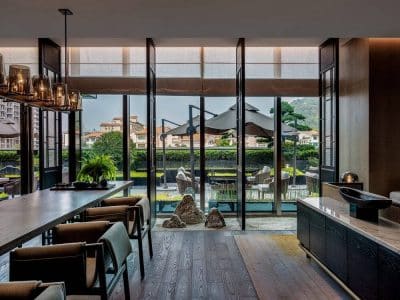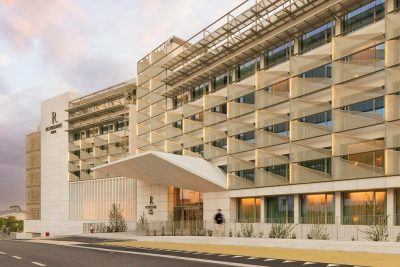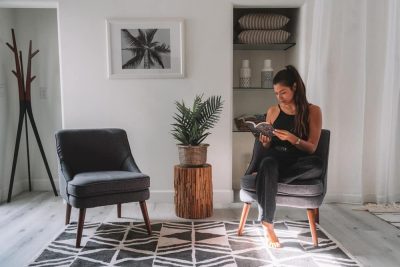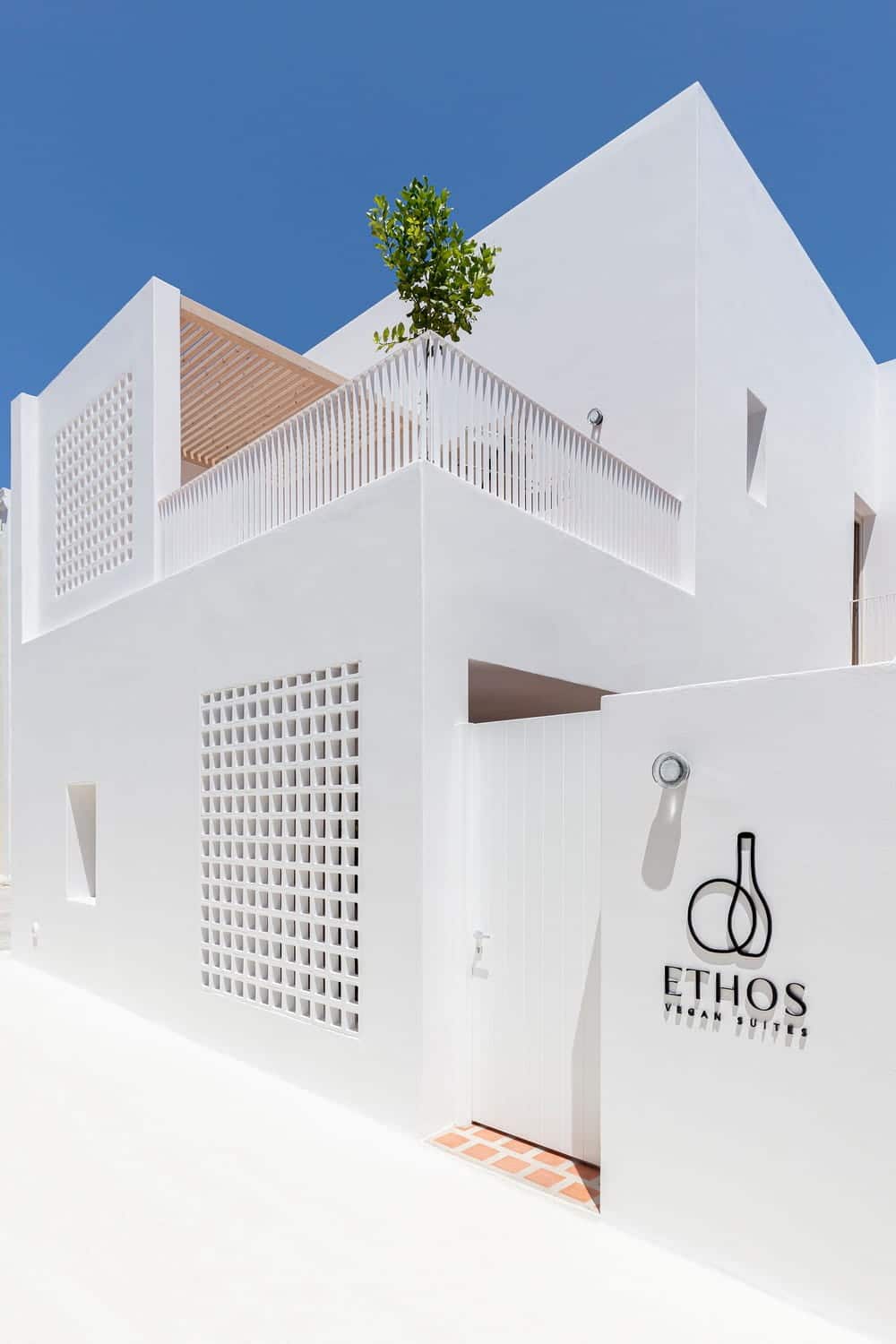
Project: Ethos Vegan Hotel
Architecture: Kapsimalis Architects
Location: Fira, Greece
Year: 2022
Photo Credits: Yiorgos Kordakis
The project’s intention was to reconstruct an old, two storey family residence placed in the center of Fira Village, which was initially built after the 1956’s earthquake of Santorini and expanded in height during the 80s’.
The former residence converted into a small vegan hotel of two suites and a small reception/kitchen in the ground floor, as also of three suites in the first floor. The two suites of the ground floor consist of a bedroom-sitting area, a kitchenette, a bathroom and their exterior yard with their small pool-lounge area. The other three suites in the upper floor, accessed through an open, vertical, green staircase, consist of a bedroom, a kitchenette, a bathroom and their balcony or terrace with a small pool-lounge area, with a view to the eastern side of the island and the sea.
A common semi outdoor living space, in front of the reception, works as the entrance from the pedestrian, the welcome space for the Ethos Vegan Hotel, sharing guests to their suites and a meeting point for interaction and conversation regarding island sightseeing, vegan cooking, sustainability, etc.
On the top, a part of the terrace is planted with aromatic herbs and local vegetables that are used for hotel’s vegan plates and drinks, served to the guests.
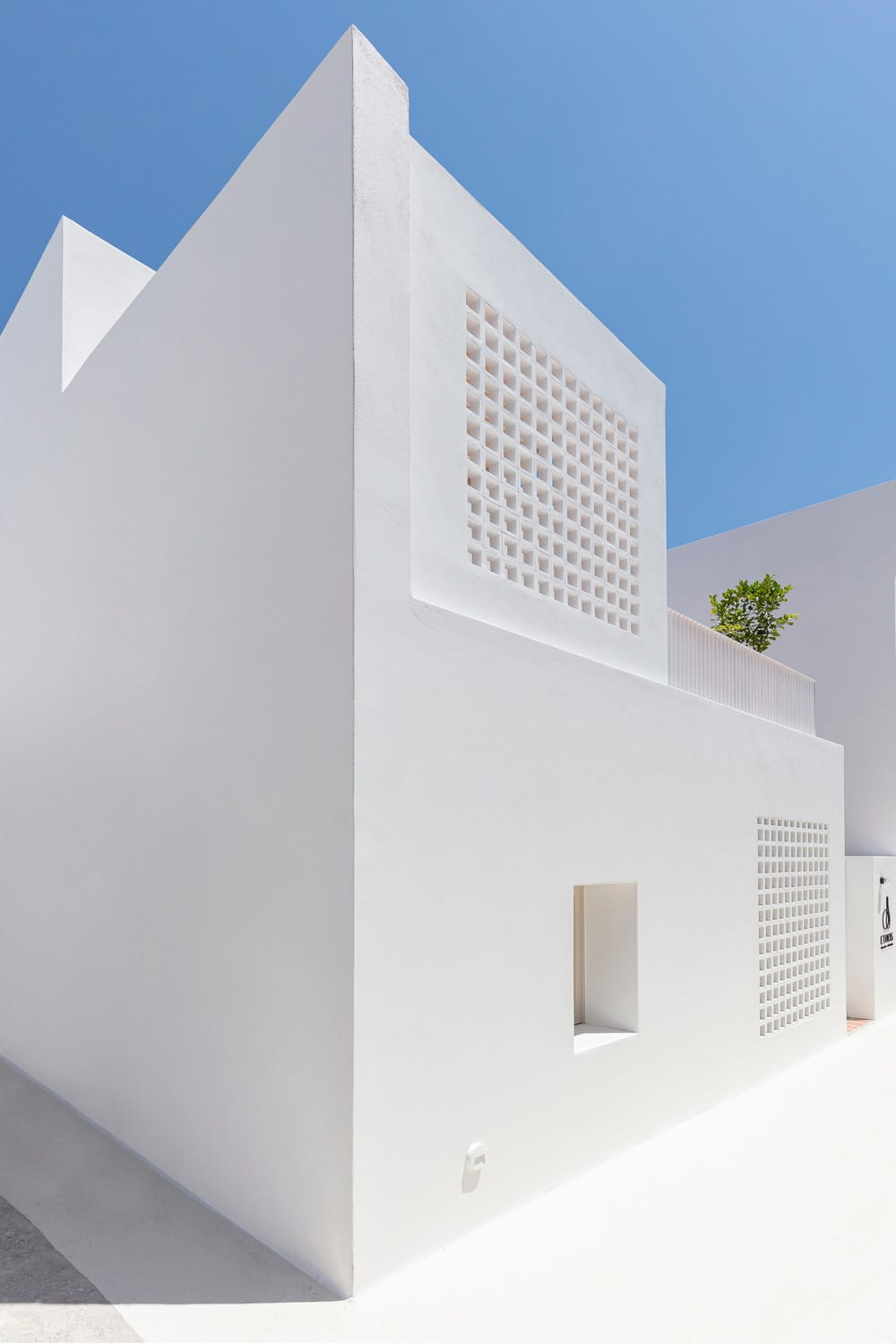
The general geometries and forms of the existing residence’s outer shell were maintained and improvised by the removal and addition of several building elements, in terms of its transformation to a more plain structure and its integration into the cubistic and white-colored village of Fira.
Stairs’ and balconys’ parapets, decorative cornices and parts of the exterior wall that encloses the semi outdoor yard removed or replaced.
White thin metallic handrails for protection, solid or perforated walls, made by diverse types of ceramic claustra, that create different kinds of private or semi-private areas leaving the wind and light to pass through, a new staircase that leads to the terrace and expansions of the existing volume in some parts are the additions made to turn it into a contemporary structure.
One of the most important objectives of the proposal was to apply the vegan way of life into the design. The non-use of materials and furniture derived from animal products, the use of materials that are made by recyclable components, the use of natural materials such as ceramics, clay, stone, oak wood, mortar, cotton, hemp, linen etc., the use of products made by local craftsmen, the construction of building furniture, the use of earth tones, the use of plants and greenery, the addition of water features, the assurance of natural light and fresh air, the use of new technology for the building to function with less energy consumption, were parameters that taken into consideration in order to create biophilic and sustainable spaces that enhance calmness and balance.
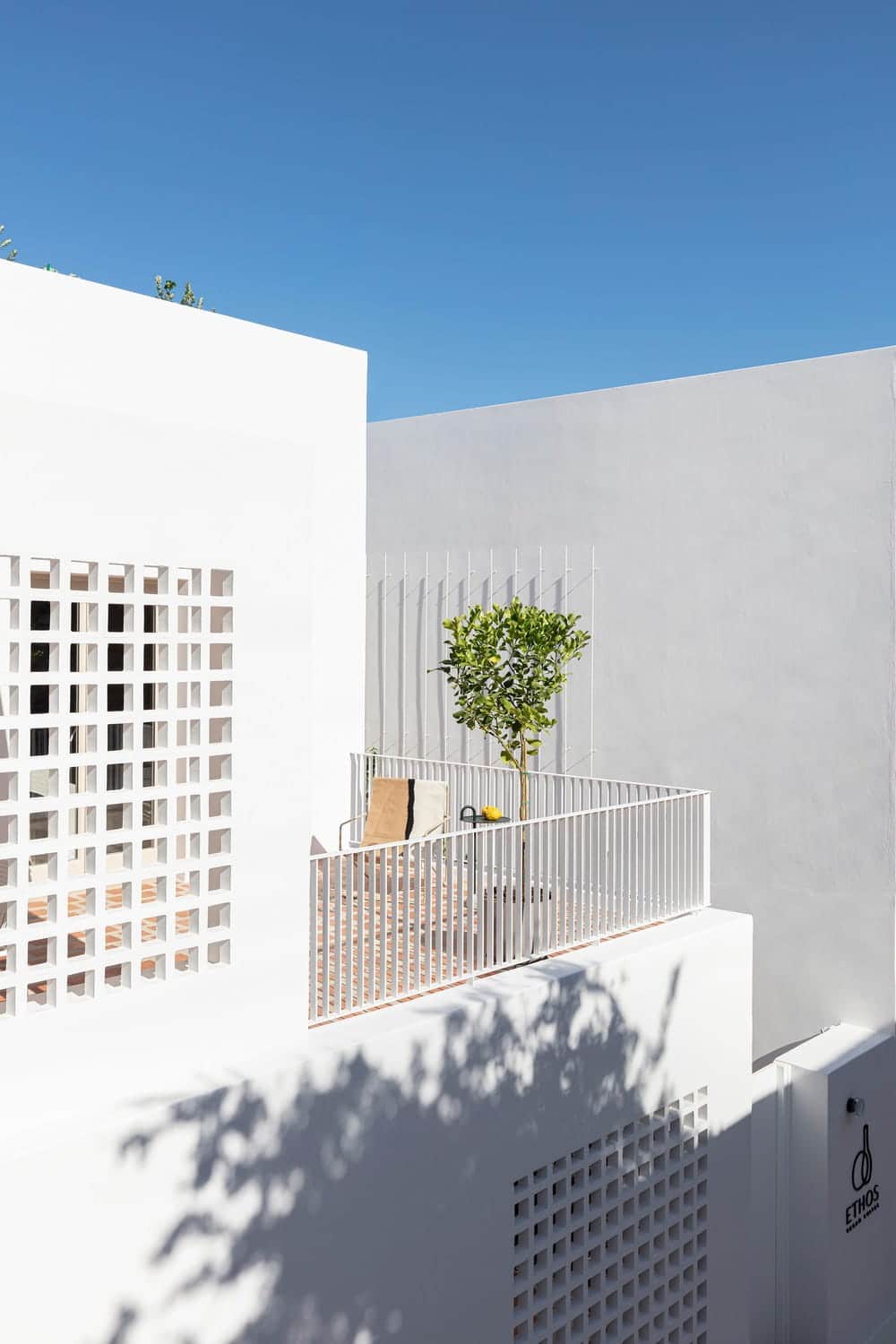
Specifically, based on the above, regarding the exterior materials, small ceramic red squared tiles were placed on the floors, at a distance from each other, filled by natural beige mortar, creating a pattern. The exterior walls of the building and the perforated dividers made by ceramic claustra are painted in an off white color, in order to fit with the surroundings.
Beige zellige handcrafted clay tiles, with a bit of shining, cover the small pools inside and outside. Vertical white thin metal strings that end up in pots with climbing plants, transform the party wall of the hotel into a green surface.
The pergola placed on the balcony of the upper suite, the main door of the reception and the doors and windows of the building are designed inspired by old traditional carpentry techniques.
In the same direction, the interior floors were covered by large squared tiles in brown/grey color, enclosing small ceramic remnants and tesseraes.
The interior walls and ceilings of the suites and the common spaces were lined with rough plaster containing hemp, sand and cobs.
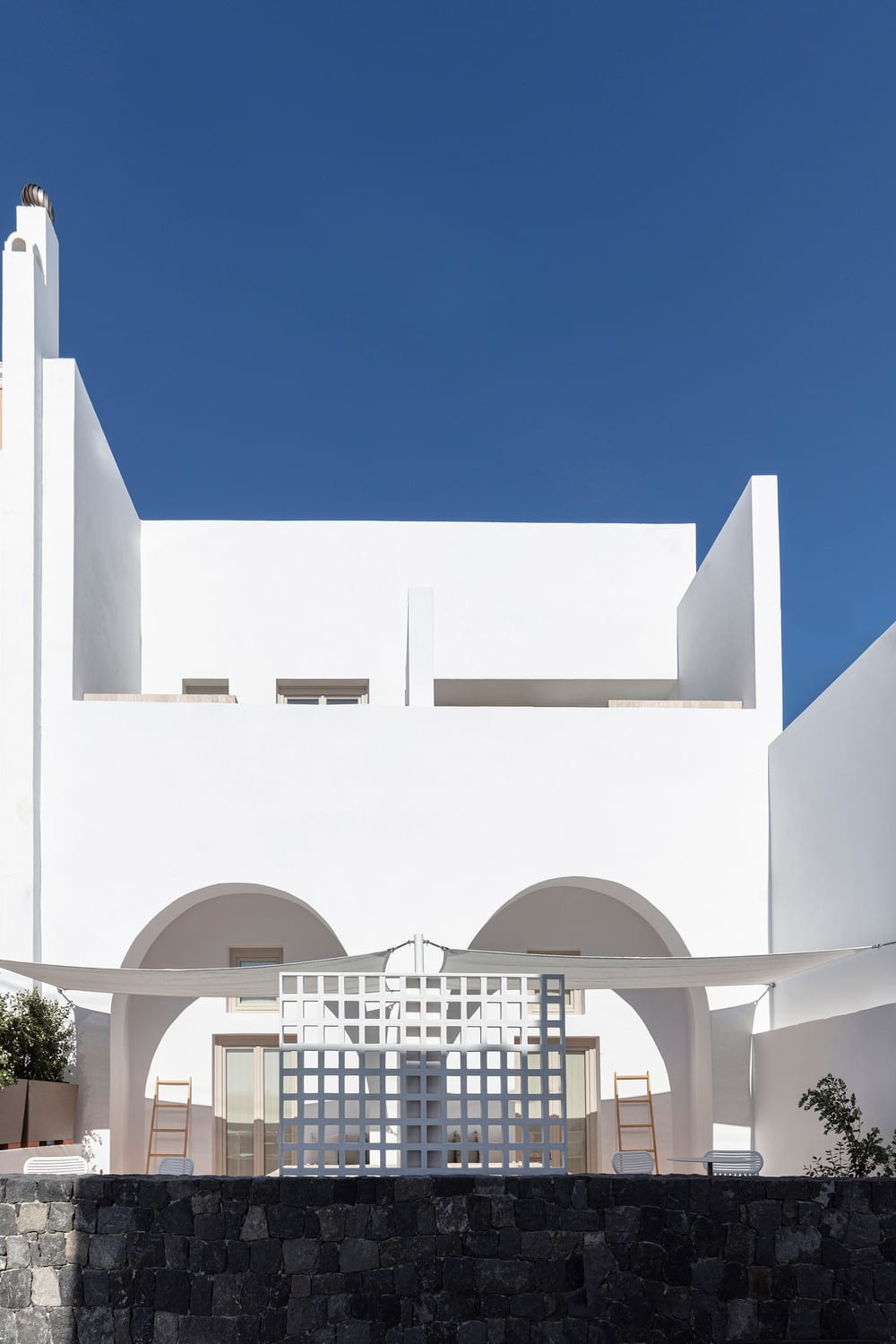
The vaulted ceilings of the two suites of the ground floor were covered by smooth white plaster in order the form of the vault to be emerged.
Off white, local cement mortar was used to cover the surfaces of the bathrooms.
Glass partitions in yellow and green colors are used as a dividers between the shower area and the rest bathroom.
Two kinds of materials consisting of plaster and recyclable stones or colourful, recyclable glasses, are used to cover the kitchenettes’ and bathrooms’ sinks accordingly.
The wardrobes and the shelves are made by natural oak.
Thin, rectangular, teracota tiles are used to cover parts of the interior walls, in combination with the ceramic claustra in its natural red color that are used to support wooden desks and to hide the air- condition machines.
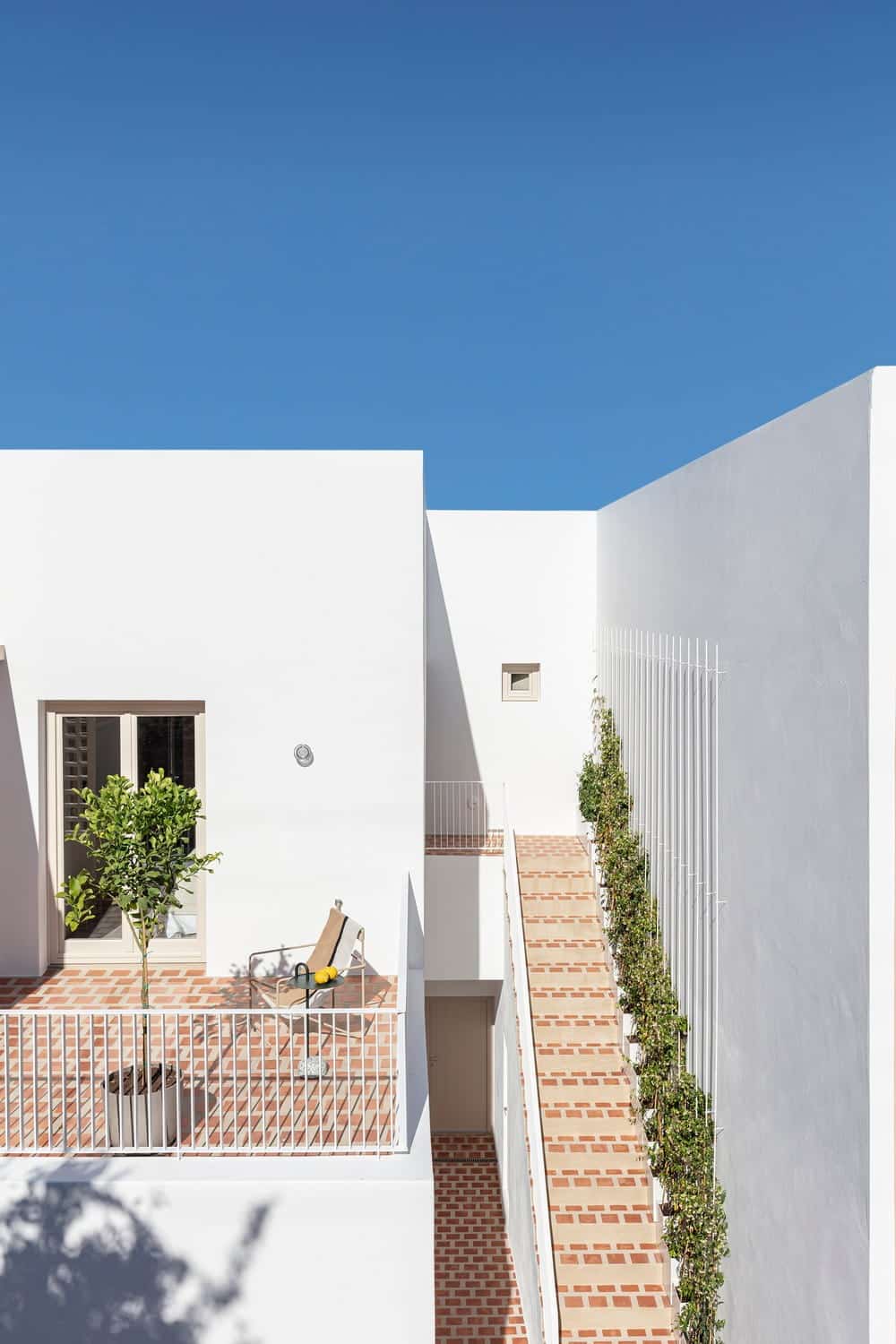
Mirrors in bronze color, black metal elements, custom tables made by travertino marble, lights made by clay, colourful glasses, wood and metal, furniture in the same color palette and materiality, like oak coffee tables, pale green or grey wooden side tables, benches made by wood and straw, metal exterior dinning tables with terrazzo bases, wooden sun loungers, white metal exterior dinning chairs, ceramic decorative vases, etc, complete the interior design, bringing the nature into it and giving a sense of uniqueness and handcraftship.
The proposal experiment the design possibilities of transforming an existing two storey building, into a place – Ethos Vegan Hotel – that serves the vegan ethics and style of life, providing well living, warmth, hospitality, calmness and the experience of the authentic island holidays, as a hidden gem in the middle of a very dense settlement like the village of Fira.
